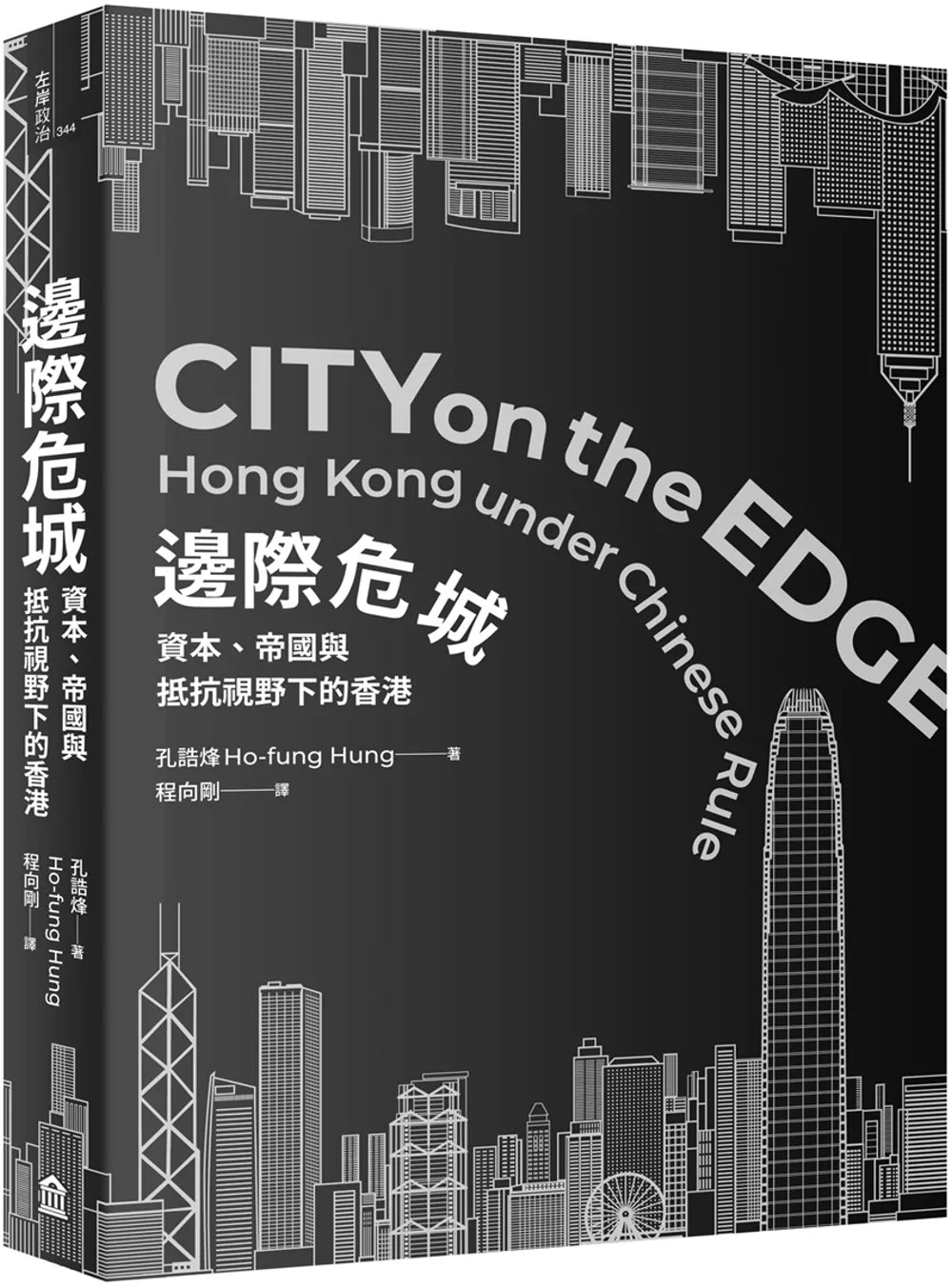1
/
of
1
Border City: Hong Kong through the lens of capital, empire, and resistance
Border City: Hong Kong through the lens of capital, empire, and resistance
Kong Hefeng Cheng Xianggang 译
Regular price
$25.99 USD
Regular price
Sale price
$25.99 USD
Unit price
/
per
Out of stock
Couldn't load pickup availability
About Book
About Book
City on the Edge: Hong Kong under Chinese Rule
For decades, Hong Kong has maintained a precarious freedom amidst the power struggles of major powers. This book offers a timely and insightful account of Hong Kong's development from a remote fishing village to its present state after 1997. The author meticulously analyzes a wealth of economic data, political events, actors, and ideas, allowing readers to understand the economic, political, and social causes of the massive protests that erupted in Hong Kong in 2019. At the same time, it is important to understand that these protests must be viewed within the geopolitical context of the global financial system and the US-China confrontation. Discussing Hong Kong's future, the author argues that the resistance and repression of 2019-2020 will not mark the end of Hong Kong, but rather the beginning of a long-term confrontation with global turmoil.Recommended by all walks of life
A native Hong Konger and a distinguished sociologist, Kong offers a penetrating analysis of Hong Kong's evolution, explaining how the city has gradually transformed from a gateway to Chinese commerce and political neutrality into a political community resisting mainland control. For decades, Hong Kong served as a "super-special free trade zone" and a "cultural supermarket," fostering its unique way of life. Chinese authorities began to view this situation as a danger, as many Hong Kongers—including some members of the Chinese Communist Party—supported the pro-democracy protests in Beijing during the June 4th Incident in 1989. Starting in the 1990s, mainland-based financial elites strengthened their control over Hong Kong's economy, collaborating with local political elites to ensure compliance with Beijing's policies. Kong traces two parallel evolutions: Beijing’s determination to assimilate Hong Kongers into China, while Hong Kongers develop their own unique identity of glory. These two forces collided, sparking a series of large-scale demonstrations in the 2010s and culminating in Beijing’s draconian national security law in 2020. Kong argues that the struggle for Hong Kong’s future is not over. However, his analysis of how Hong Kong has fallen to its current state is so convincing that it is difficult to maintain hope. —Andrew J. Nathan, Professor of Political Science and Director of the East Asian Institute at Columbia University, Foreign Affairs
This is a powerful book, full of clear-cut factual analysis, brought to life by the author's deep and intimate understanding of the local people and society. With his masterful narrative, Kong Gefeng places the historical story of Hong Kong from different perspectives: global, regional, national, and comparative. In this moment of darkness and despair, this book is a must-read, enabling us to understand the past and build a beautiful new future. — Li Jingjun, Professor of Sociology at the University of California, Los Angeles, and Founding President of the Society for Hong Kong Studies
At a time when many of Hong Kong's freedoms seem to have vanished, Kong's historical insights and deft analysis of capital demonstrate that Hong Kong's yearning for liberal values is far from over, and that a new, more hopeful era is still possible. —Rana Mitter, Professor of Modern Chinese History and Politics at the University of Oxford and Director of the Centre for Chinese Studies
Hong Kong-born sociologist Kong Hefeng of Johns Hopkins University uses detailed and robust research to examine the "historical roots" of the 2019 uprising against Chinese rule in Hong Kong. Tracing Hong Kong's development from the settlement of Tanka fishermen in the 12th century to the present day, Kong argues that Hong Kong has never been politically neutral. He writes that the "one country, two systems" policy implemented after the 1997 handover from Britain is "a replay of Beijing's strategy to incorporate Tibet in the 1950s." He also shows how the influx of mainland Chinese immigrants into Hong Kong and Tibet has fueled protests and corresponding repression. He also explores the value of Hong Kong to China, both as an economic locomotive and as a "contact zone" between China and the West; he documents the gap between Hong Kong's reform-minded lower and middle classes and its conservative business elite; and he examines the political movements that preceded the 2019 uprising, including the universal suffrage and labor rights movements in the late 1990s and Occupy Central in 2014. Although Kong's in-depth exploration of the political economy may be too heavy for the average reader, the context he draws is valuable and allows us to understand the situation in Hong Kong today. This book provides a clear insight into this major issue of geopolitics. - Publishers Weekly
Publication Date
Publication Date
2022-07-06
Publisher
Publisher
左岸文化
Imprint
Imprint
Pages
Pages
304
ISBN
ISBN
9786269609574
share

